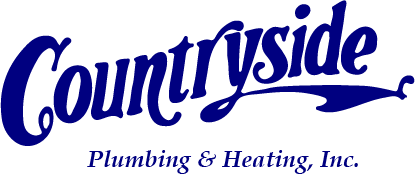In 2015, every water heater manufacturer that sells in the United States must have their equipment conformed to the new standards of energy efficiency. This is applicable to all residential, propane, electric and gas water heaters. Water heaters as they are currently known will not look the same.
New 2015 Water Heater Regulation Changes
Water heaters that are manufactured after April 16, 2015 are required to obey the rules for the new energy efficiency standards. This will result in a mandatory increase of between 3 and 30 percent greater efficiency versus current models. The quantity differs by tank size according to the formulas. More efficiency will be required based on the size of the tank. There are only small gains in efficiency; however, the overwhelming majority of US homes have a water heater. Therefore, this can add up to huge environmental benefits.
The Effects
If your tankless water heater has efficiency rating over .82, it is already compliant. However, if you have a regular tank heater, you could be affected. To achieve the efficiency, additional insulation will be added by manufacturers. You will be impacted as outlined below:
In 2015, every water heater manufacturer that sells in the United States must have their equipment conformed to the new standards of energy efficiency. This is applicable to all residential, propane, electric and gas water heaters. Water heaters as they are currently known will not look the same.
New 2015 Water Heater Regulation Changes
Water heaters that are manufactured after April 16, 2015 are required to obey the rules for the new energy efficiency standards. This will result in a mandatory increase of between 3 and 30 percent greater efficiency versus current models. The quantity differs by tank size according to the formulas. More efficiency will be required based on the size of the tank. There are only small gains in efficiency; however, the overwhelming majority of US homes have a water heater. Therefore, this can add up to huge environmental benefits.
The Effects
If your tankless water heater has efficiency rating over .82, it is already compliant. However, if you have a regular tank heater, you could be affected. To achieve the efficiency, additional insulation will be added by manufacturers. You will be impacted as outlined below:
Fitting It In
These new tanks will be different in size; they will be wider and taller. Additionally, larger venting will be required for some of the gas water heaters.
Custom Installation
The installer may need to do some creative planning to fit the new heater to fit some homes. For example, if a 50-gallon tank is too big, a 40-gallon tank that have an additional mixing valve could produce the required amount of hot water. Fortunately, we have the experience to get that done.
Price Increase
Manufacturers will need to undertake the expensive task of re-tooling production lines. There will also be increased materials cost from the added tank insulation; as such, we expect a price increase in the $100 range.
Three Replacement Choices
• Substitute with the style and size of your existing tank while it is still available.
• Upgrade to compliant water heaters
• Think about moving to a tankless heater
These are things that must be done in keeping with the 2015 Water Heater Regulation Changes.
These new tanks will be different in size; they will be wider and taller. Additionally, larger venting will be required for some of the gas water heaters.
Custom Installation
The installer may need to do some creative planning to fit the new heater to fit some homes. For example, if a 50-gallon tank is too big, a 40-gallon tank that have an additional mixing valve could produce the required amount of hot water. Fortunately, we have the experience to get that done.
Price Increase
Manufacturers will need to undertake the expensive task of re-tooling production lines. There will also be increased materials cost from the added tank insulation; as such, we expect a price increase in the $100 range.
Three Replacement Choices
• Substitute with the style and size of your existing tank while it is still available.
• Upgrade to compliant water heaters
• Think about moving to a tankless heater
These are things that must be done in keeping with the 2015 Water Heater Regulation Changes.
For more information visit us at //countrysideph.com/blog/

